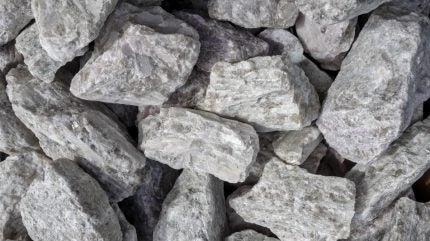
Pure Lithium is acquiring all the assets, including intellectual property, of Dimien, a vanadium cathode materials innovator in Buffalo, US.
This represents a significant advancement in Pure Lithium’s efforts to fully commercialise its lithium metal-vanadium (LVO) battery, which can potentially reduce the US’ reliance on China for current battery materials.
Last month, the US Government proposed a ban on Chinese software in vehicles and, earlier this year, raised tariffs on Chinese EVs. Yet the US remains “dangerously dependent” on China for its EV batteries.
“Connected vehicles and the technology they use bring new vulnerabilities and threats, especially in the case of vehicles or components developed in the PRC [People’s Republic of China] and other countries of concern,” Jake Sullivan, US President Joe Biden’s National Security Adviser, told reporters on 20 September.
This proposal aims to stop Chinese intelligence agencies from tracking Americans’ activities or using vehicle electronics to gain access to the US electric grid or other critical infrastructure.
Pure Lithium is developing a next-generation battery that is safer and more cost-effective, can store more energy and has a longer lifespan compared with today’s lithium-ion (Li-ion) battery.

US Tariffs are shifting - will you react or anticipate?
Don’t let policy changes catch you off guard. Stay proactive with real-time data and expert analysis.
By GlobalDataPure Lithium Founder and CEO Emilie Bodoin said: “We have a lithium metal electrode production technology that dramatically reduces costs… Eliminating graphite, nickel and cobalt is disruptive for the industry and will ensure US supply chain security, ending dependence on China.”
According to the company, the battery can be ethically sourced and manufactured entirely using materials found in North America, thereby removing China from the supply chain. China currently dominates the EV battery market and processing of most battery materials, holding an almost 60% monopoly on lithium refining and processing, according to International Energy Agency (IEA) figures.
Pure Lithium’s LVO battery also has no cobalt, nickel or manganese, reducing the US’ dependence on other countries with poor environmental or labour records.
Pure Lithium will pair its lithium-metal anode with Dimien’s vanadium cathode, which uses zeta vandanium (ZVO). ZVO is a low-cost cathode material with high energy density and improved safety compared with today’s NMC (nickel-manganese-cobalt) and NCA (nickel-manganese-aluminium) cathodes used in Li-ion batteries.
“Dr Brian Schultz, [founder and CEO of Dimien] and his team have worked diligently for years to develop a vanadium cathode. They have taken ZVO from a university science project to commercially relevant prototypes, which cycle beautifully against our lithium metal,” Bodoin said.
Also, Pure Lithium’s new approach reduces lithium metal production costs by 90% and could lead to lithium metal batteries costing less than $50 per kilowatt-hour for the first time. This technology could potentially replace the dominant Li-ion batteries in the EV market.
Bodoin added: “It is well known by battery manufacturing incumbents that vanadium is not technically viable for use in lithium-ion batteries, which utilise a graphite anode and a lithiated transition metal oxide cathode. Ironically… the same reasons that vanadium is not viable for lithium-ion technology make it the perfect pairing for Pure Lithium’s next-generation lithium metal batteries, presenting an unprecedented commercial opportunity for Pure Lithium.”



